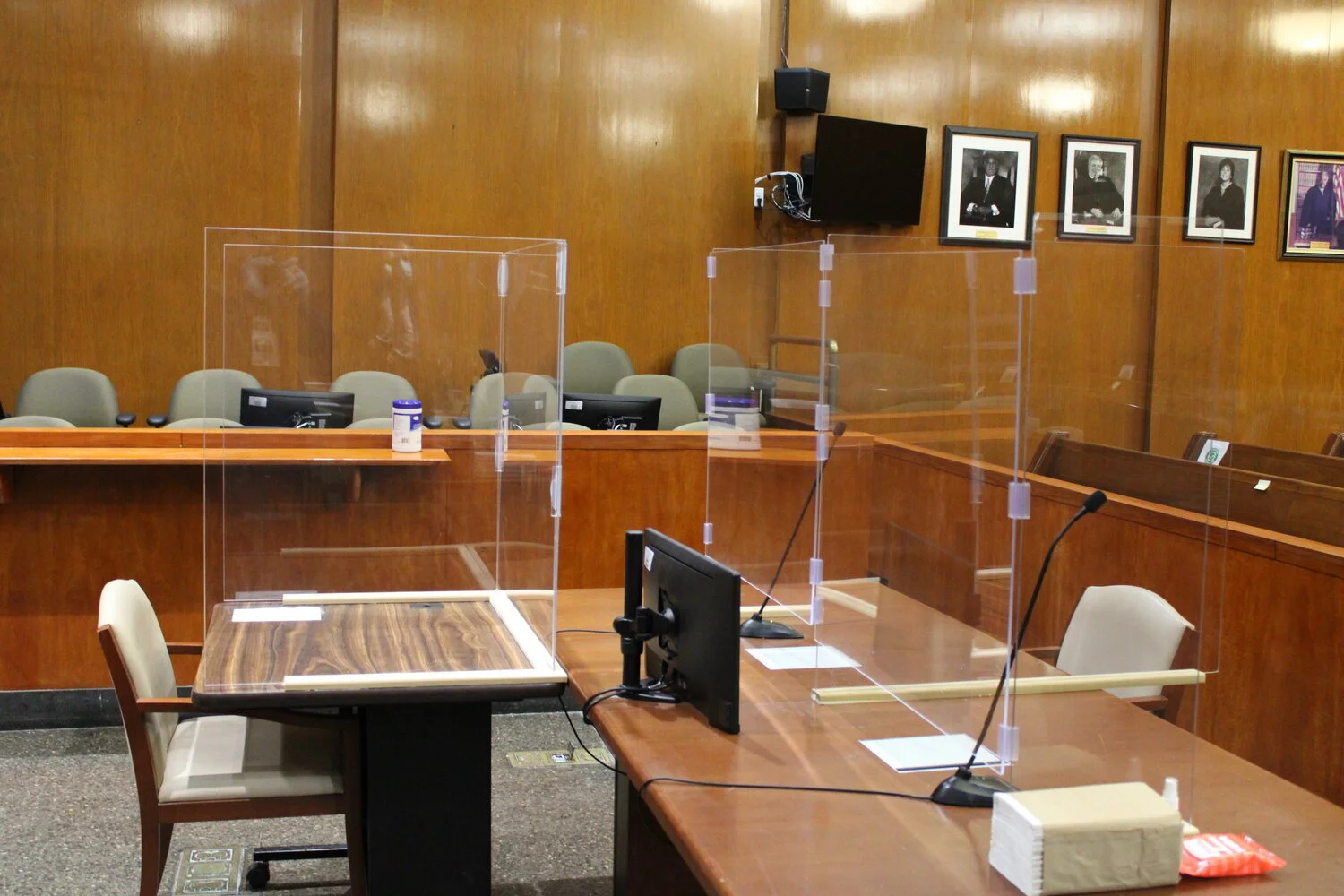Housing courts open as COVID cases loom
/The Housing Part is boosting in-person appearances beginning this week. Eagle file photo by David Brand
By Jacob Kaye
After essentially being entirely shut down throughout the pandemic, housing courts in New York City returned to some sense of normalcy Tuesday despite fears from a group of attorneys and housing rights advocates.
The Housing Part resumed regular calendars for newly filed cases on Sept. 21, according to the Office of Court Administration.
The proceedings will mostly be done virtually, but there will be “as few as practicable” in-person appearances, according to an OCA spokesperson.
While the intake of cases will continue in a virtual setting, litigants are now given the option to show up in-person to be assigned counsel. After being given an attorney, the litigant will appear in-person for a preliminary conference. Following the conference, the judge will decide whether to proceed in-person or online.
With the changes, a group of legal aid attorneys, housing rights advocates and elected officials, wrote to OCA and Governor Kathy Hochul urging extreme caution in inviting people into the courthouses.
“At a time when COVID-19 cases and hospitalizations in New York City are increasing, it would imperil the safety of thousands of New Yorkers, both tenants and legal workers, to return to pre-pandemic business as usual,” the group wrote. “In [courthouses], where attendance is compulsory, maintenance is poor, and people are crowded together, a respiratory virus like the one that causes COVID-19 thrives.”
The letter was signed by groups including the Legal Services Staff Association, the Association of Legal Aid Attorneys, VOCAL-NY, the Ridgewood Tenants Union and Queens Assemblymembers Brian Barnwell, Jessica González-Rojas and Zohran Mamdani.
Around 120 courthouse staff and judges have tested positive for COVID-19 this month, according to the OCA. Nearly 160 people tested positive in August.
The attorneys called on the state to make a greater push to disseminate funds available in its rent relief program instead of pushing people back into court.
“In order to prevent the spread of COVID-19 and in order to effectuate all rent relief programs that are currently egregiously delayed, we demand that OCA immediately cease any plans to require tenants and attorneys to appear in person in housing court,” they wrote.
However, some attorneys are looking forward to the return to in-person proceedings, saying they feel safe and haven’t seen the buildings look too crowded in recent months.
“I didn't see any issues with them opening it up at all,” said Mohamed Baig, a real estate attorney at Baig and Associates, LLC, who primarily represents landlords. “I think that [the precautions the courts are taking] are sufficient.”
Baig said that a portion of his clients are landlords who are only looking to get rent relief through the state and don’t want to evict their tenants. However, another portion of his clients are looking to the courts to help evict tenants who have proved to be a nuisance.
“They just want these people out,” Baig said. “They're the ones that suffered the most because now they have to put up with the tenants, especially if a tenant is disruptive and nuisance, causing problems. And they can't get the tenant out at least until the end of the moratorium or even get into court.”
The state moved to extend the eviction moratorium earlier this month through the middle of January.
Baig added that private attorneys are desperate for courts to open back up because that’s how they make their living.
“Solo practitioners like me, we need to get back into court for us to earn a living too,” he said. “By not doing that, we can’t earn a living properly. It’s very difficult.”
The OCA says its slow roll out of in-person practices has continued with this latest push in housing court.
“New York City Housing Court is taking careful, measured steps to increase our operations as New York City continues its recovery from the pandemic, schools reopen in person, and other activities resume,” a spokesperson said. “[The attorneys] hyperbolic assertions help no one, particularly litigants who have waited more than a year for their day in court.”




